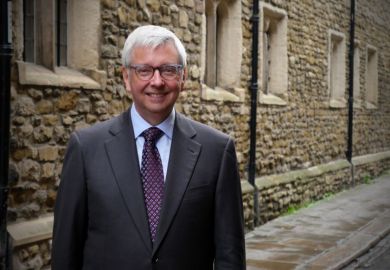The University of Cambridge has broken off talks with the United Arab Emirates over a £400 million partnership following revelations about the Gulf state’s use of hacking software.
The collaboration, initially announced in July, was described as a “potential strategic partnership” aimed at “helping to solve some of the greatest challenges facing our planet”. The Guardian reported that the UAE would donate £312 million to Cambridge as part of the deal.
However, vice-chancellor Stephen Toope said that the talks had been cancelled in light of the UAE’s reported ties to the Pegasus spyware programme.
The Guardian reported in July that the UAE had been the “principal government” responsible for selecting hundreds of UK telephone numbers on a leaked list believed to show people of interest to clients of NSO Group, the Israeli company that produces the software that can hack into and secretly take control of a mobile phone.
Earlier this month a High Court judge ruled that the ruler of Dubai and prime minister of UAE, Sheikh Mohammed bin Rashid al-Maktoum, was implicated in the hacking of phones belonging to his former wife, Princess Haya Bint al-Hussein, and her divorce lawyer, Conservative peer Baroness Shackleton of Belgravia.
Professor Toope told student newspaper Varsity that there were “no conversations about a big project [with the UAE]. It’s all on hold for now.”
“The revelations about Pegasus caused us to decide that it’s not the right time to be pursuing these kinds of really ambitious plans with the UAE,” the vice-chancellor said in an interview.
News of the potential collaboration between Cambridge and the UAE triggered criticism, amid concern about UAE’s record on human rights and the rights of women and LGBT people in particular.
Professor Toope told Varsity: “Will we ever engage with these conversations in the future with a whole range of countries who don’t share our values? I’m sure we will, but I hope we’ll be doing it with our eyes wide open and with a rigorous assessment which says that the need to collaborate is greater than the risks that we’re willing to undertake and how do we mitigate those risks. And, if we can’t mitigate them, we absolutely shouldn’t engage.”
NSO has denied that the numbers in the leaked list are related to it in any way, or that it targeted the numbers on the list.
A Cambridge spokesman said: “The University of Cambridge has numerous partnerships with governments and organisations around the world. It approached the United Arab Emirates as it does all potential partnerships: with an open mind, and rigorously weighing the opportunities to contribute to society – through collaborative research, education and innovation – against any challenges.
“These are always finely balanced assessments. We will be reflecting over the next few months before further evaluating our long-term options with our partners and with the university community.”
Register to continue
Why register?
- Registration is free and only takes a moment
- Once registered, you can read 3 articles a month
- Sign up for our newsletter
Subscribe
Or subscribe for unlimited access to:
- Unlimited access to news, views, insights & reviews
- Digital editions
- Digital access to THE’s university and college rankings analysis
Already registered or a current subscriber?







